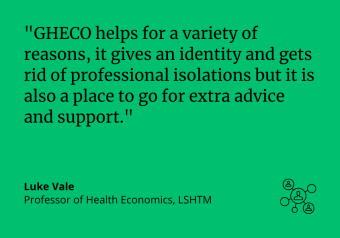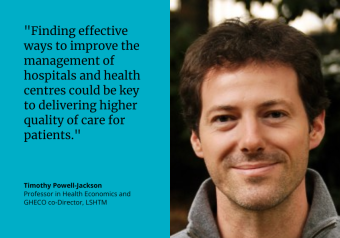We are a world-leading group of over 100 academics working on a diverse portfolio of health economics research. Our work ranges from developing innovative methods and empirical research to policy engagement and impact. We work across the globe in low, middle, and high income settings.
About
The Global Health Economics Centre acts as the central body for staff and students across the School who study or apply health economics.
Themes
Our research spans the field of health economics, including: Economic evaluation and priority setting; evaluation of complex policy interventions; economics of health systems and organisation; economics of infectious diseases; preferences, behaviour and outcomes; the macroeconomics of health; and health financing.
Opportunities
To find out about current opportunities attached to the Global Health Economics Centre, please check our News page.





